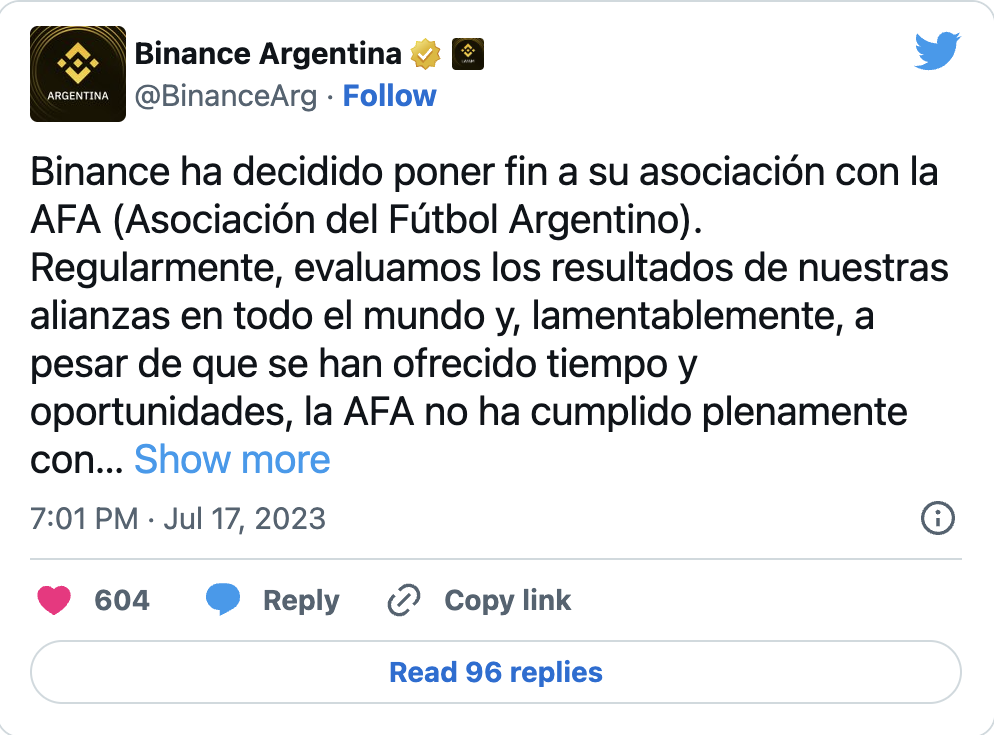The world’s largest global cryptocurrency exchange, Binance, terminated its 5-year sponsorship agreement with the Argentine Football Federation last year, citing compliance issues. Amidst regulatory issues and market decline, Binance highlighted the federation’s failure to comply with its obligations, leading to the termination of the contract. The agreement, initially planned for five years, was terminated within a relatively short period of one year.
Failure to Fulfill Contractual Obligations!
The cryptocurrency market giant Binance cited the Argentine Football Federation’s failure to fulfill contractual obligations as the reason for termination.

“The Argentine Football Federation did not fully comply with the contractual obligations, which contradicted our business values and partnership principles.”
Binance also expressed its disappointment with the federation’s failure to fully comply with the contract terms, despite giving them sufficient opportunities. With this agreement, Binance became the main sponsor of the Argentine National Football Team and the name sponsor of the National Football League. The Argentine Football Federation terminated its contract with Binance to secure this agreement, leading to a major controversy. Later, Socios, the fan token platform, initiated legal proceedings against the Argentine Football Federation in January 2022 and won the case, granting exclusive rights to the $ARG token. According to this decision, all rights and responsibilities for the ARG token were transferred to Socios until 2026, concluding the legal process.
Accusations Against Binance Continue
Binance is currently facing multiple examples of non-compliance with such regulations. In Brazil, there are allegations that Binance’s exchange operates like a pyramid scheme. As a result of these allegations, the CEO of Binance Brazil was summoned to testify before Congress. Additionally, in Europe, Binance was asked to leave Belgium and the Netherlands citing regulatory issues. While the exchange was forced to close immediately in Belgium, customers in the Netherlands were instructed to transfer their assets to different cryptocurrency exchanges.









